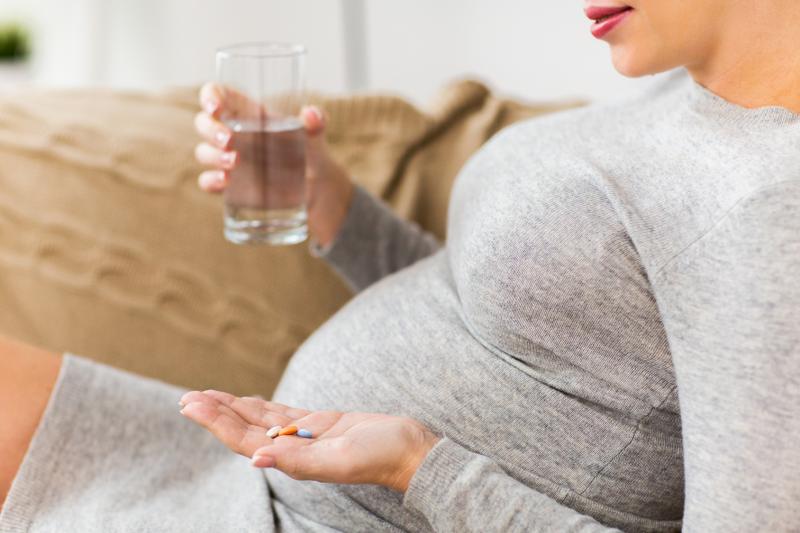 Expecting mothers who takes painkillers during their pregnancy may risk having children with ADHD, study shows.
Expecting mothers who takes painkillers during their pregnancy may risk having children with ADHD, study shows.Lithium exposure at any time during pregnancy among women with bipolar disorder is associated with certain dangers, and such risk is greater for first-trimester or higher-dosage exposure, reveals a study.
This systematic review and meta-analysis evaluated case-control, cohort and interventional studies reporting on the safety (primary outcome: any congenital anomaly) or efficacy (primary outcome: mood relapse prevention) of lithium treatment during pregnancy and the postpartum period. The investigators used the Newcastle-Ottawa Scale and the Cochrane risk of bias tools to assess the quality of available PubMed and Scopus records through October 2018.
Twenty-nine studies met the inclusion criteria, of which 20 were of good quality and six of poor quality; one study had an unclear risk of bias and two had a high risk of bias. Thirteen studies could be included in the quantitative analysis.
Lithium prescribed during pregnancy led to an increased risk of any congenital anomaly (n=23,300, k=11; prevalence=4.1 percent, k=11; odds ratio [OR], 1.81, 95 percent CI, 1.35–2.41; number needed to harm [NNH], 33, 22–77) and of cardiac anomalies (n=1,348,475, k=12; prevalence=1.2 percent, k=9; OR, 1.86, 1.16–2.96; NNH, 71, 48–167). Moreover, first-trimester exposure to lithium correlated with greater odds of spontaneous abortion (n=1,289, k=3; prevalence=8.1 percent; OR, 3.7, 1.15–12.39; NNH, 15, 8–111).
Significance persisted when comparing lithium-exposed and unexposed pregnancies for any malformation (exposure during any pregnancy period or first trimester) and cardiac malformations (exposure during first trimester), but not for spontaneous abortion (exposure during first trimester) and cardiac malformations (exposure during any pregnancy period).
Treatment with lithium was better than no treatment at preventing postpartum relapse (n=48, k=2; OR, 0.16, 0.03–0.89; number needed to treat, 3, 1–12). Furthermore, mothers with serum lithium levels <0.64 mEq/L and dosages <600 mg/day had more reactive newborns without an increased risk of cardiac malformations, as shown in qualitative synthesis.
“Ideally, pregnancy should be planned during remission from bipolar disorder and lithium prescribed within the lowest therapeutic range throughout pregnancy, particularly during the first trimester and the days immediately preceding delivery, balancing the safety and efficacy profile for the individual patient,” the investigators said.